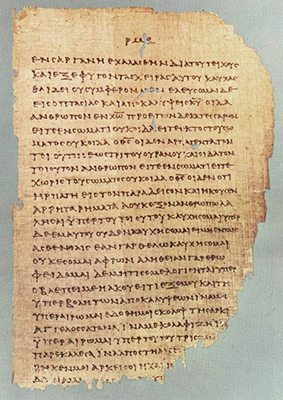Also on this page:
Greek Verbs,
More Language Topics
More Topic Categories
Greek Language
 The Greek language belongs to the family of Indo – European languages and is the sole member of a subcategory of that family. It also belongs to the Balkan linguistic bond.
The Greek language belongs to the family of Indo – European languages and is the sole member of a subcategory of that family. It also belongs to the Balkan linguistic bond.In antiquity, Greek was the most widespread language in the Mediterranean and South Europe, mainly because of the many colonies that had been established by Greeks. In fact, Greek became the trade language up to the end of the Alexandrian Period. Today, Greek is spoken as a mother language by roughly 12 million people, most of them in Greece and Cyprus. It is also the mother language of natives in Albania, Bulgaria, FYROM, Italy and Turkey. Due to immigration, Greek is also spoken in many other places in the world, including Australia, Canada, Germany, United Kingdom, Russia and United States. It is estimated that 25 million people around the world speak Greek either as a mother or foreign language. Greek is the official language of Greece and Cyprus, as well as one of the 23 official languages of the European Union. It is also an official minority language in Albania, Armenia, Italy, Hungary, Romania and Ukraine.
The Proto – Greek language appeared before 1600 BC but very little is known. It consisted of seven cases (nominative, genitive, dative, accusative, subtractive, locative and vocative) and preserved many of the characteristics of the Indo – European mother – language. A very important characteristic was its musical tone; in Ancient Greek, the tone did not correspond to an increase in volume, but rather an increase in tonal height. This language evolved to Mycenaean Greek as it is found on tablets written in Linear B and on some lines of the Homeric Epics. However, the Epics were mostly written in Classical Greek and are considered the oldest texts in that language. The main characteristic of this language is the existence of dialects, probably because of the spread of Greek – speaking people in multiple states. One of the most important dialects of Classical Greece was the Attic dialect, mainly used in Athens and the language of philosophers and scientists; the Attic dialect was recognized as the official language of Greece by Philip of Macedon and the official language of the Hellenistic World by Alexander the Great.
Due to the adoption of the Attic dialect by many non – Greek speaking populations, many alterations were made and eventually, the Hellenistic Koine language emerged. This is mainly used in religious scripts, such as the New Testament. The Koine language evolved into Medieval Greek, which was mainly used in traditional folk songs, and the final evolutionary step was the Modern Greek language, which has been used since the last years of the Byzantine Era.
See Also:
 Athens Photos
Athens Photos
 Santorini Photos
Santorini Photos
 Crete Photos
Crete Photos
 Meteora Photos
Meteora Photos
 Corfu Photos
Corfu Photos

